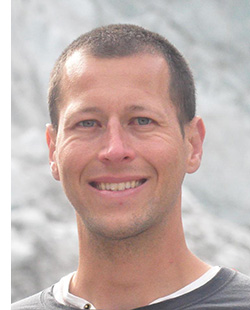 OPN spoke with Halvar Trodahl, a senior associate at McKinsey & Company, a global management consulting firm, to get his perspective on working as a consultant with a Ph.D. in physics.
OPN spoke with Halvar Trodahl, a senior associate at McKinsey & Company, a global management consulting firm, to get his perspective on working as a consultant with a Ph.D. in physics.
What is your current role, and what are your day-to-day responsibilities?
As an associate at McKinsey & Company, I do project-based work with a small team of consultants to help our clients solve their toughest challenges. These challenges can range from determining strategic direction and market response to optimizing operations and developing business technology implementation. On a day-to-day basis, this means working closely with our McKinsey team as well as the client team to help build a deep understanding of the problem, the potential solutions, and the ability of our clients to succeed in tackling this and future challenges.
We work with leading organizations across the private, public and social sectors to increase their capabilities and leadership skills at every level and every opportunity. We do this to help build internal support, get to real issues, and reach practical recommendations.
What path did you take to get to your current position?
As I worked toward my Ph.D., I explored roles outside of my academic discipline in order to understand in which direction I wanted my career to move after graduate school. These explorations included teaching in areas outside of the physical sciences and taking on leadership positions in student organizations.
How do you feel that your science background has been helpful in your career?
I like to distinguish between the content knowledge and process knowledge that I developed during graduate school. Of these, my process knowledge is something I constantly draw on in my current work. The primary example of this is problem solving. As a Ph.D. student I honed my ability to take a complex problem, break it into its constituent parts, solve these piece by piece through hypothesis formulation and data analysis, and pull these together to form a coherent and holistic story. This process is something I use on a daily basis in my work as a consultant. On the other hand, I typically don't use, or expect to use, the content knowledge that I developed in my studies (e.g., quantum mechanics, nano-fabrication).
Is there anything that you wish you had done differently in your own education or career?
I would have spent more time exploring opportunities outside of physics during graduate school. In particular, I would have worked with student and university organizations early on so as to explicitly develop my leadership capabilities. I found these types of experiences very influential and wish I had pushed myself to have them from day one.
What one piece of advice would you give to someone who wants to follow a similar career path?
Explore career and extracurricular activities broadly and as early as possible. Having a range of experiences will help develop a baseline by which you can better understand which career options you are most interested in pursuing. Additionally, these experiences will arm you with a set of valuable tools that can be applied regardless of which path you choose to follow.
Halvar Trodahl is a senior associate at McKinsey & Company. Halvar joined McKinsey in 2012 after completing a Ph.D. in physics at Harvard University. Originally from New Zealand, he completed undergraduate degrees in science and business at Victoria University of Wellington. Halvar taught in a variety of disciplines throughout his academic career, ranging from global health to management theory.
